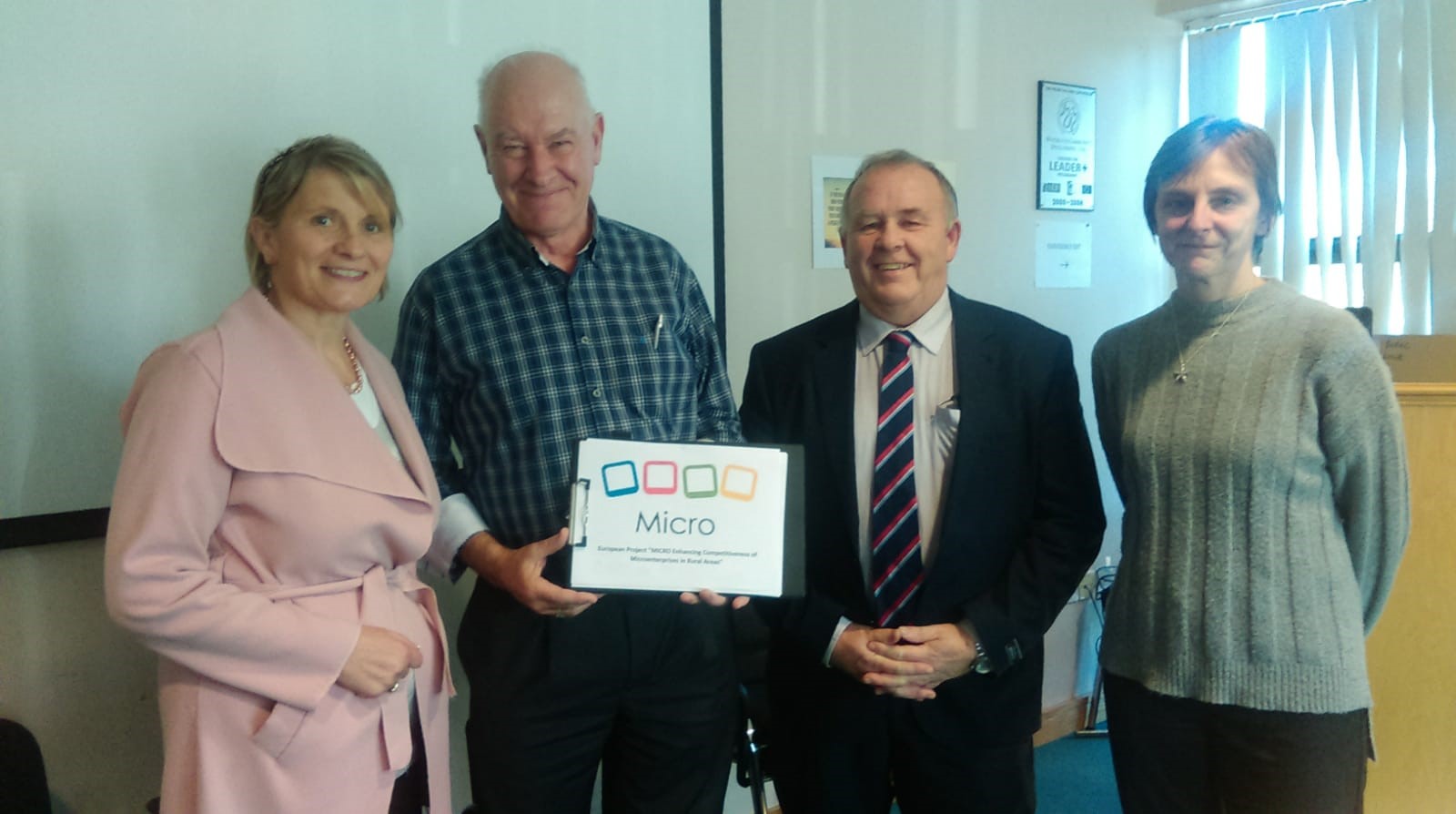Irish Rural link (IRL), the national network representing the interest of rural communities, hosted the closing meeting of Micro-enhancing competitiveness of micro enterprises in rural areas, in its office in Moate on October 25.
Micro was an EU project co-funded by the Erasmus+ programme. It was implemented by seven partners from six countries: Belgium; Greece; Ireland; Italy; Macedonia; and Spain. IRL was the lead partner in the project.
Other partners included: Maynooth University; IHF (Belgium); DP SAS, Italy; EEO Group SA, Greece; Community Development Institute (CDI), Macedonia; and Internet Web Solutions, Spain.
The consortium met for the formal closure of the project and to explore future exploitation of Micro results and outputs.
“The Moate meeting offered a unique opportunity to illustrate the results achieved and to explore the possibilities for further implementation,” said Maria Pettit, IRL coordinator.
Practical training
“The idea behind Micro was to sustain the growth and competitiveness of rural micro enterprises by developing practical training resources and a dedicated open educational resource (OER platform).
“After a structured need analysis, the consortium developed tailored training modules on the needs of micro enterprises in rural areas, to help them build capacity and new skills.”
The training is freely available in multilingual versions on the dedicated open educational resource platform: www.microsmetraining.eu.
“Each module takes between 45 minutes to one hour to complete, making it ideal for time-poor entrepreneurs,” Maria said.
“An important issue discussed during the meeting was targets achieved during dissemination activities. Partners are strongly committed to give great visibility to the project.
A dedicated multiplier event was held in every project country in addition to daily online and offline dissemination activities.
“The Micro website will be maintained for two years after project completion.”
As part of the project a test and validation report has also been published on the Micro website.
“The purpose of the test and validation phase of Micro was to test the training courses developed and validate that they address the specific training needs and capacity gaps identified during the assessment phase,” Maria said.
Feedback and comments collected from over 350 participants involved in the pilot deployment of the Micro training are vital to fine-tune the Micro OER platform and the training content, she said.
Positive Feedback
“The feedback was very positive and confirmed that the training courses developed successfully address the needs of the target group.”
The target was to train a minimum of 200 micro enterprises and craft-type enterprises across the six countries represented in the consortium.
“The target group for training was rural micro enterprises and partners were able to successfully reach this target group during their training activities. The validation plan guided the test and validation activities, and that took place from February to October 2018,” said Maria.
“Participants were very happy with the ease of use of the platform and really appreciated the free access to the content, which does not require registering. These aspects single the Micro platform out from other available online training,” she said.
The final multiplier event for the Micro project took place in Moate the following day, October 26. The event was attended by local entrepreneurs and community groups who were presented and shown the online education resource. There was positive feedback and discussion following the presentations, Maria said.


